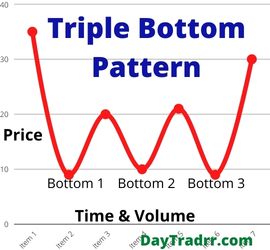What Is a DPPs?
 DPPs are non-traded, pooled investments. They generally invest in real estate or energy-related ventures that are seeking funds for an extended period of time. They are called Direct Participation Programs or Direct Participation Plans. DPPs have a fixed lifespan, generally five to 10 years. However, they tend to be passive investments.
DPPs are non-traded, pooled investments. They generally invest in real estate or energy-related ventures that are seeking funds for an extended period of time. They are called Direct Participation Programs or Direct Participation Plans. DPPs have a fixed lifespan, generally five to 10 years. However, they tend to be passive investments.
This is a bit different from other pooled products like mutual funds and exchange-traded funds (ETFs). Most of the investments with the pooled money are in products that trade on the market, like stocks and bonds. And, you can actively trade mutual funds and other types of investments. However, DPPs have passive management. For example, non-listed real estate investment trusts (REITs), oil and gas programs, and non-listed business development companies all qualify as DPPs.
To participate, members buy in to access the DPP’s benefits. A limited partnership, a general partnership, or an S corporation subchapter usually sponsors the purchase. This setup offers many benefits to the participants. It means the DPP doesn’t pay any corporate tax. Therefore, income, credits, and others are passed through to the partner.
However, there are potential drawbacks. DPPs aren’t publicly traded. As a result, they aren’t liquid, at least for the duration of the program. Also, since they’re not publicly traded on the stock market, you might be missing some important company disclosures that would otherwise come with a publicly-traded company. Also, they are not open to all investors. Clients are required to meet certain income and asset thresholds to participate in buying DPPs. Those requirements can vary by state and even the program.
DPPs – A Deeper Look
Individual investors pool resources to become limited partners in private, generally nontraded, or unlisted business ventures. These ventures often acquire real estate or energy-related assets. The unlisted REIT, for example, is a common DPP.
- Passive investment – Investors in DPPs are considered passive in terms of liability. This is similar to traditional bond and stock buyers. In general, the investor’s financial downside and legal downside are limited to the amount invested. This can be an attractive feature.
- Limited liability – If an individual is a direct owner of an apartment building, for example, he can face civil or even criminal charges. But, investors in real estate limited partnerships or limited liability corporations are insulated and protected. Legal exposure is limited to the general partner and the partnership or corporation. The downside in DPPs is generally limited to the amount invested and opportunity costs. Of course, there have been exceptions.
- Income and tax advantages – A direct participation program usually is a legal entity. It is usually defined as a limited partnership, a general partnership, or a subchapter S corporation or similar. Under these formats, DPP income, losses, gains, tax credits, and deductions (including real estate depreciation) are transferred through to the limited partner (the investor) on a pre-tax basis. The DPP pays no corporate tax. Instead, the ordinary income to the investor is taxed.
DPPs – Sponsorship and Fees
Generally, investors can expect about 15 percent of invested capital to be consumed by fees, often upfront. As a practical matter, individual investors rarely spontaneously organize to invest. Rather, they are brought together by a sponsor or promoter. Usually, the sponsor becomes the general partner as well, in any particular DPP. Sponsors collect fees to successfully organize and market a DPP. Also, if serving as general partners, collect management fees. Liquidity can also be a concern. Stock and bonds can be purchased and held for any duration. It is possible to trade and hold for hours, days, weeks, or the long-term. However, most DPPs target a five- to 10-year lifespan. Once established, they are usually illiquid for the entire timeframe.
DPPs Pros and Cons
DDPs are different from stocks, bonds, and mutual funds. They aren’t typical investment securities. Therefore, there are a few positive as well as negative things you need to know.
Pros
- ROI: The return on investment can be anywhere from 5% to 7%. Non-liquid assets can add stability to a portfolio. Market upturns or downturns have little impact. DPP investments provide stability, especially in the short term. it’s an investment that spans upwards of a decade.
- Diversification: DDPs are non-traditional assets, so they diversify your income and portfolio. They add an opportunity and alternative that can help you branch out from regular stock market options.
- Limited investment & limited liability: Investors consider DPPS passive investment vehicles. As a result, you’re not legally responsible during a lawsuit or if a company faces charges. However, the general partner or sponsor corporation would still have to deal with the issue until it is resolved.
Cons
- Income threshold requirement: Some programs and states have a minimum requirement of annual income and net worth. For example, annual income of $75,000 and $250,000 net worth. Different states have different requirements. These thresholds might limit some investors from qualifying and participating in DPPs.
- Limited company financial disclosures: These companies don’t trade publicly. As a result, their reporting requirements are different from exchange-traded assets. You won’t always receive access to certain company financial documents. This means you could be missing out on some important company information.
- Long-term illiquidity: DPPs not listed to the general public. This makes them not liquid investments. As a result, it means you can’t touch them for their lifespan. This could be anywhere from five to 10 years.
Frequently Asked Questions
Are DPPs only for accredited investors?
How are DPPs taxed?
Are hedge funds DPPs?
Bottom Line
If you’re considering alternative investments, direct participation programs are a solid option for stability and steady returns. They also add diversification to a portfolio. They offer decent returns and very little stock market exposure. DPPs allow investment in real estate, business development companies, and even oil and gas programs. But, once you make the commitment, you are in it for the long haul. You can’t liquidate a DPP for the duration of its program life – which can span a decade. If you’re looking to build cash quickly, within a few months or a couple of years, this might not be the best investment for you.
Up Next: What Is the Certainty Equivalent?
 A certainty equivalent is a guaranteed return that someone would accept now rather than taking a chance on a higher, but uncertain or risky return later. Put another way, we can say it is the lesser amount of money that one would accept to deny entering an event. This is in exchange for the possibility of winning an even larger amount of money by entering the event. In other words, the certainty equivalent is the guaranteed amount of cash that a person would consider as having the same amount of desirability as a risky asset.
A certainty equivalent is a guaranteed return that someone would accept now rather than taking a chance on a higher, but uncertain or risky return later. Put another way, we can say it is the lesser amount of money that one would accept to deny entering an event. This is in exchange for the possibility of winning an even larger amount of money by entering the event. In other words, the certainty equivalent is the guaranteed amount of cash that a person would consider as having the same amount of desirability as a risky asset.
Certainty is perfect knowledge that has total security from error. It is the state of being without doubt. Objectively defined, certainty is total continuity and validity of all foundational inquiry, to the highest degree of precision. Something is certain only if its validity is totally beyond doubt. Certainty Equivalent is the return or cash that an investor will accept today than the higher but uncertain return in the future. Or, we can say it is the certain or guaranteed cash that an investor would prefer instead of taking a risk for a larger amount than he may receive in the future.




